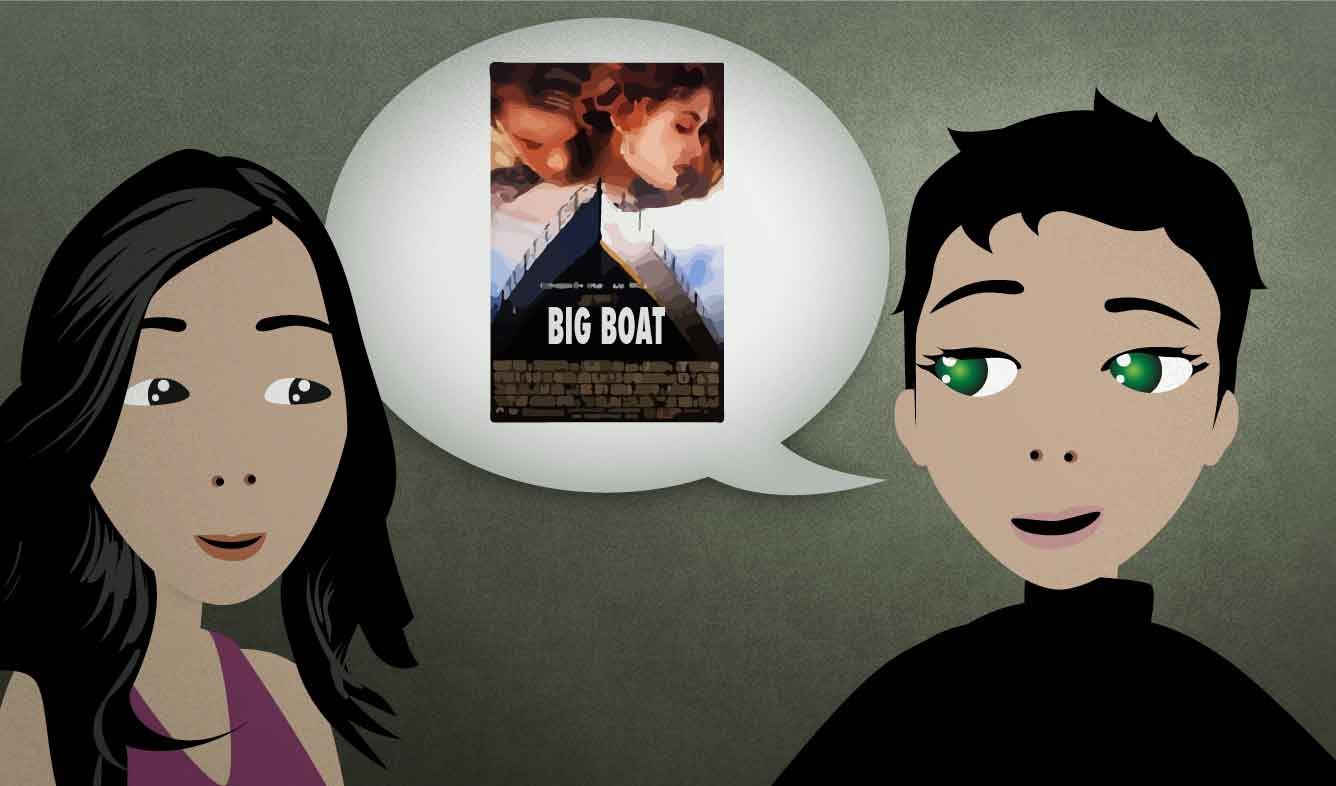“Did you see it when it was out in theaters?”
You're talking with someone about a movie that was popular when you were younger. You've both watched the movie, but you want to know if she watched it in a movie theater or at home.
Did you see it when it was out in theaters?
Want Video and Sound? Follow us on YouTube

see a movie
It can be confusing to try to figure out when to use "see" and when to use "watch". The first thing to remember is that they mean nearly the same thing. So even if you use the wrong one, you'll still be able to get your meaning across. It might sound a little funny, but it's no big deal. That having been said, here are the differences:
-
You can "see" things without trying, but "watching" something seems a little more active. For example, if you're outside at night and you think you see something moving, you say:
Did you see that?
You couldn't use "watch" in this situation. But here's an example where you should use "watch" instead of "see":
Sometimes I love to just sit on a park bench and watch people walk by.
-
For movies, TV shows, plays, and sporting events, "watch" is the most common verb:
A: What do you want to do?
B: Want to watch a movie?
I don't like to just sit at home and watch TV. I have to get out and do something productive on the weekend.
-
However, when you're talking about going out to a theater or a movie theater, it's common to use "see". This is why the example at top uses "see a movie". Here's another example:
I'm planning on seeing Pirates of the Caribbean 4 the first day it comes out.
"Watch" is still OK for describing this activity, but it's less common.
-
It's also more common to use "saw" or "seen" when you're describing movies or TV shows that you've experienced in the past:
Have you seen Toy Story 3?
I haven't seen it. Is it any good?
"Watch" is not incorrect in this situation; it just emphasizes the actual action of watching:
I watched Toy Story 3 with my kids last night. They were into it at first, but then one of them fell asleep halfway through.
Did you (do something) (at a certain time)
When you want to know about a person's experiences, you usually ask "Have you ___?"
Have you seen "Pulp Fiction"?
But when you're asking about a specific period of time, you can't use "Have you ___?" You have you use "Did you ___?" instead.
Did you meet Alexa when she was here last year?
Did you watch that show as a child?
(a movie) is out in theaters
When a major movie is first released, it's shown in movie theaters for several weeks. During this time, you can say that the movie is "out in theaters". For example:
It'll be out in theaters at the end of August.
